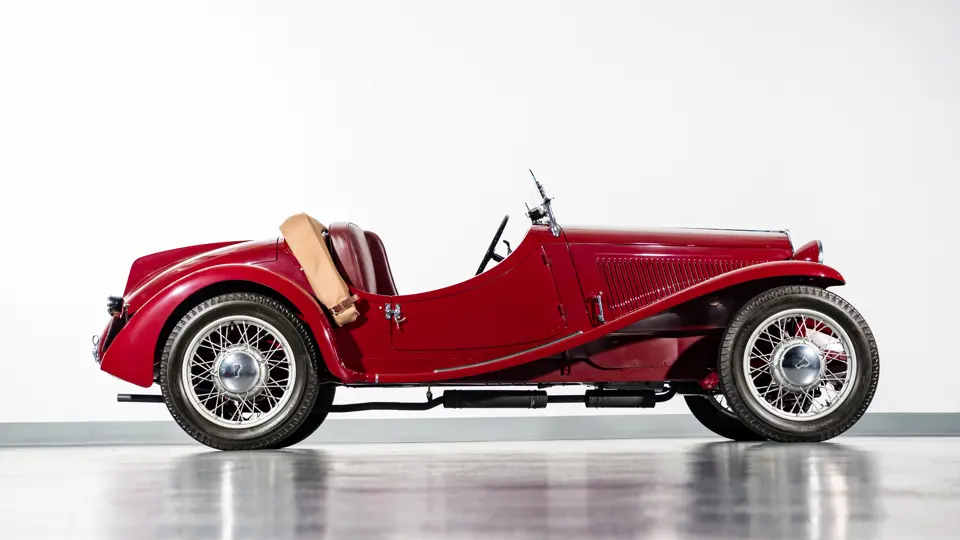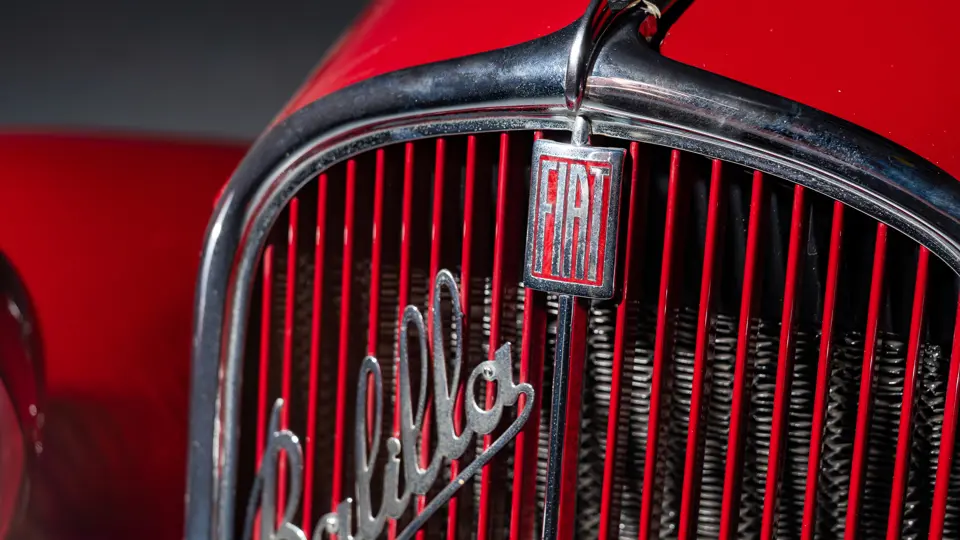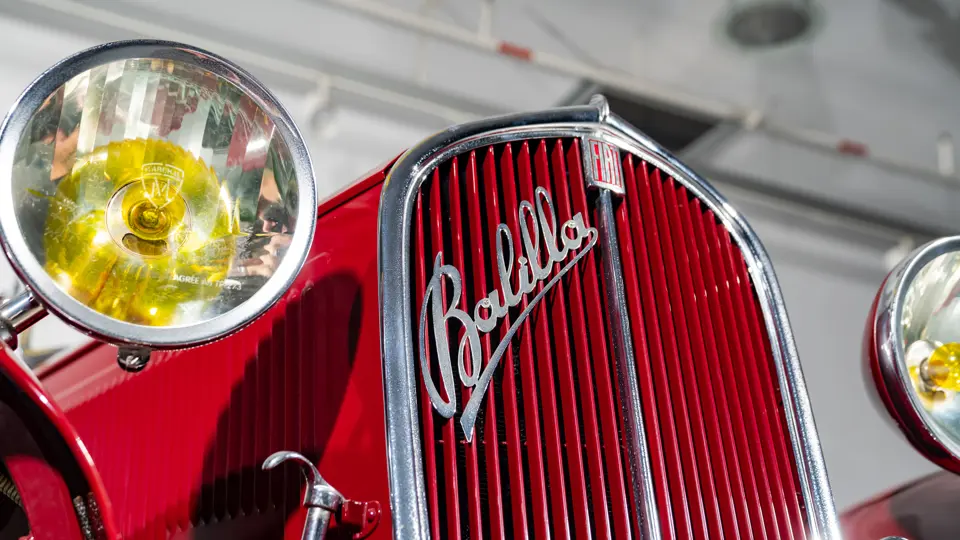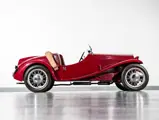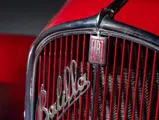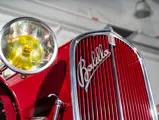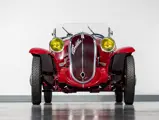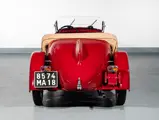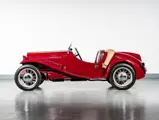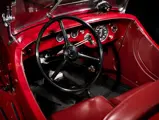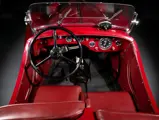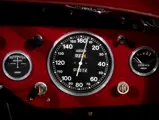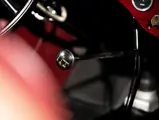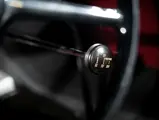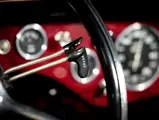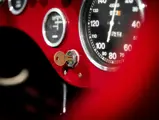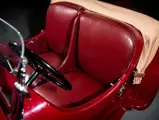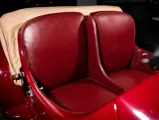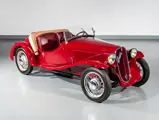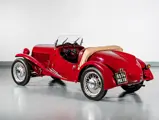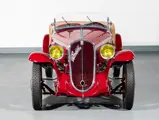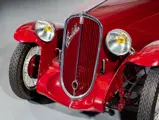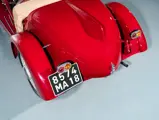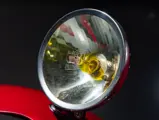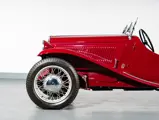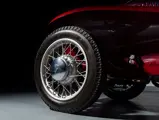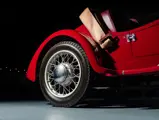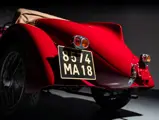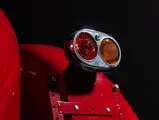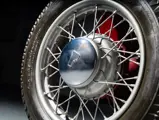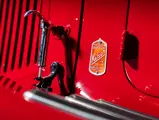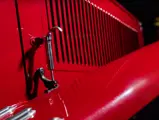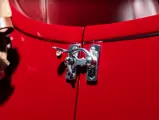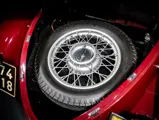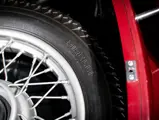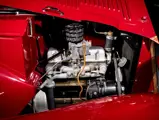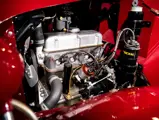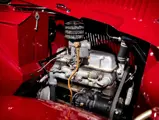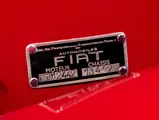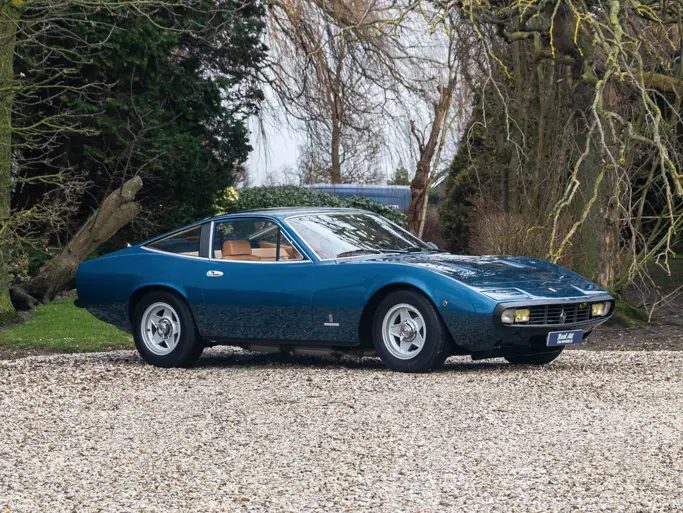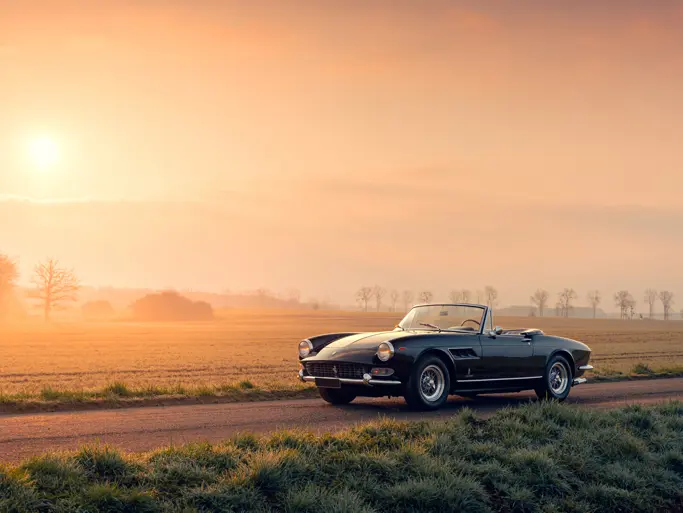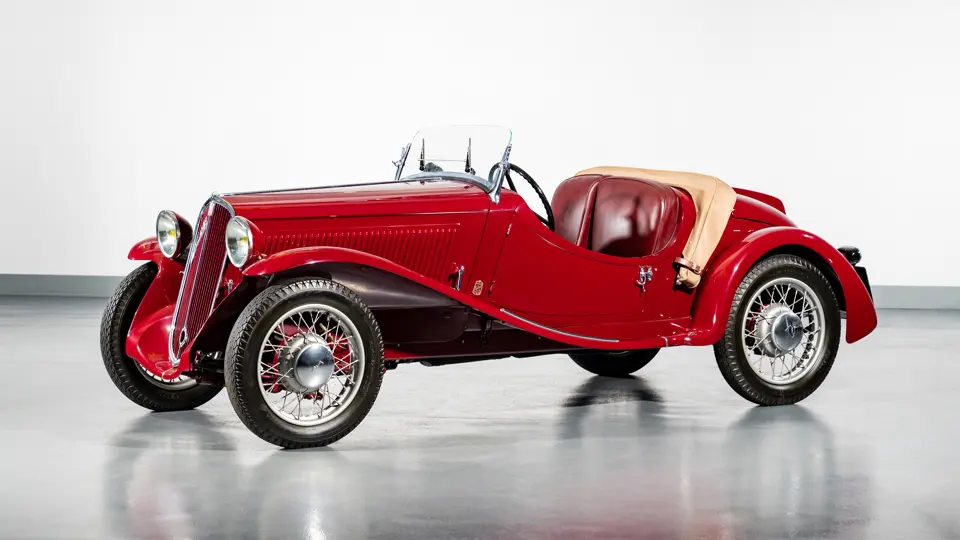
1933 Fiat 508A 'Balilla' Spider Sport Conversion by Kelsch
{{lr.item.text}}
$128,800 USD | Sold
Offered from the Oscar Davis Collection
{{bidding.lot.reserveStatusFormatted}}
- An intriguing French-built Fiat special
- Wears a Kelsch-executed facsimile of the beautiful Spider Sport body style originally designed by Ghia; cabin features Jaeger instrumentation
- Desirably equipped with the later CS-type overhead-valve engine paired with a four-speed synchromesh manual transmission
- Eligible for numerous tours and historic racing events
The first genuine Italian subcompact automobile, the Fiat 508 holds an important place in the country’s automotive history. Developed by a “who’s who” of the country’s best engineers, including Dante Giacosa, it was popularly nicknamed “Balilla” after a military hero of the 18th century who was becoming well-known again in this era of Italian nationalism. By the admission of one of its designers, Antonio Fessia, “there was nothing original” in the design, but where the 508 succeeded was in getting so much of itself right the first time. Supremely comfortable and reasonably priced, the design’s robust circum-braced chassis and hydraulic drum brakes allowed the Balilla to be built in a variety of body styles, from two-seater sport roadsters to capable commercial vehicles.
THE 508S SPIDER SPORT
The 508S Balilla Spider Sport was available directly from the Fiat catalog beginning in 1934. These competition-style cars were powered by a Siata-tuned, 995-cubic-centimeter inline-four overhead-valve engine producing 46 horsepower. The 508S was available in three distinct body styles, as succinctly noted by Fiat historian Michael Sedgwick: “the Spider Sport with flared wings; the Spider Corsa (‘Coppa d’Oro’) with narrow competition body, cycle-type wings, and no running boards; and the Berlinetta Aerodinamica, a pretty fast-back coupé”. All three of these designs utilized as their basis a streamlined Ghia design which had been licensed to Fiat.
In competition form, these factory-built 508S Spiders were exceptionally nimble and rather successful in racing; even Enzo Ferrari had a quartet of these cars racing for his eponymous Scuderia in 1934 and 1935! As a result of the Balilla’s widespread availability, it was not entirely uncommon for speed enthusiasts to have their own car converted into a more sporting configuration by a local coachbuilder. Such is evidently the case with the Balilla offered here.
THE KELSCH CONVERSION
This 508 offered here is believed to have been transformed to its current form very early in its life by the French coachbuilder Kelsch. The Fiat Certificate of Origin on file shows that the 508 Balilla bearing this chassis number was originally provided to the company’s Spanish office in January 1933 wearing a standard sedan body and 30-horsepower, side-valve engine.
It is now powered by a later-series (circa 1935) four-speed synchromesh gearbox and CS-type overhead-valve engine which has been restamped to match the unit number featured on its original chassis tag. Further, the car’s present body has been rendered by Kelsch in a style that significantly resembles the Ghia/Fiat “Spider Sport” design previously described by Sedgwick. No detail of the Ghia design seems to have escaped replication by the French coachbuilders—even the recessed passenger seat feature was faithfully executed.
This tasteful styling exercise is also nicely complemented by vivid Rosso Scuderia paint and matching upholstery beneath a contrasting khaki top. The set of enameled Kelsch badges, French-market amber headlamps, and larger, French-style instrumentation with Jaeger gauges are all supplementary details which add to the charming appeal of this Spider Sport Conversion.
Since entering the Oscar Davis Collection in 2008, it has been rarely toured or exhibited. Nonetheless, it has still been fastidiously maintained by D.L. George Historic Motorcars of Cochranville, Pennsylvania. Now presented today wearing a handsome restoration completed during previous ownership, this remarkable Fiat is a marvelous and fascinating creation blending period-correct French construction and Italian design.




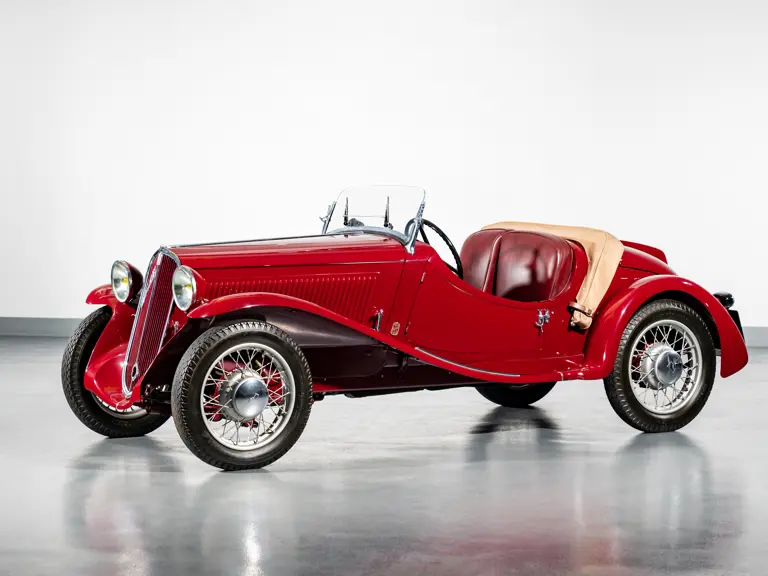
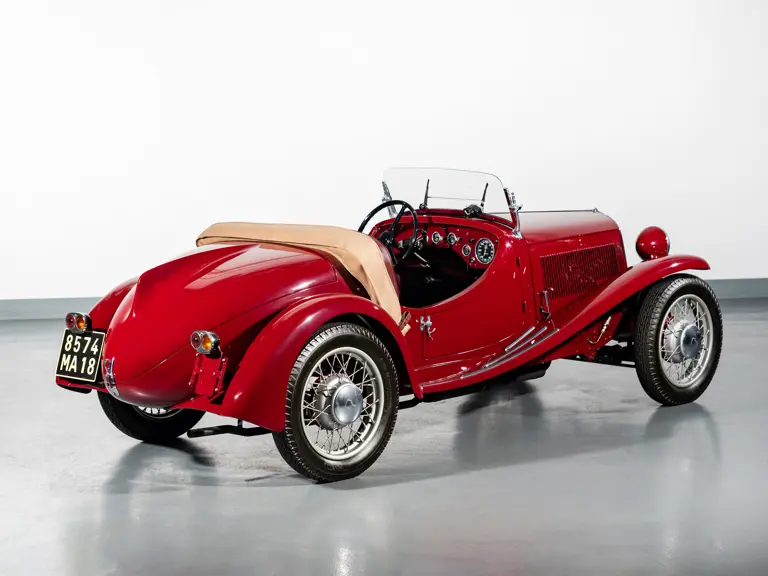
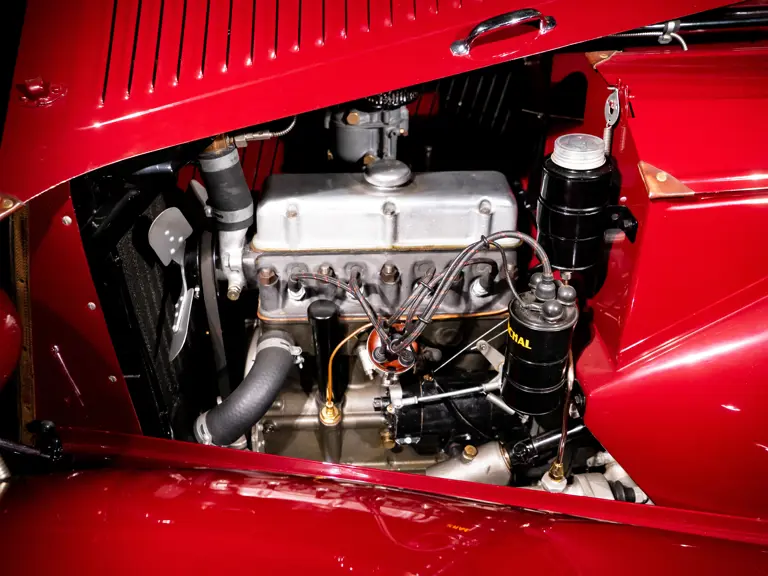
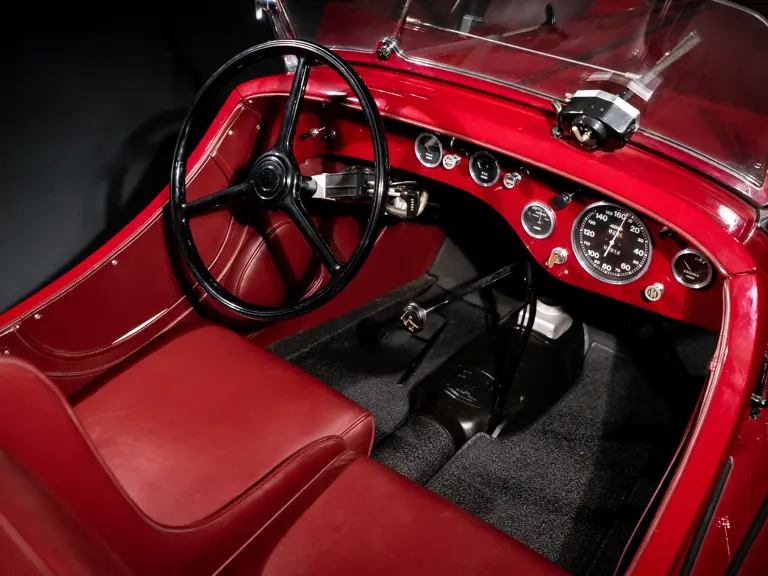
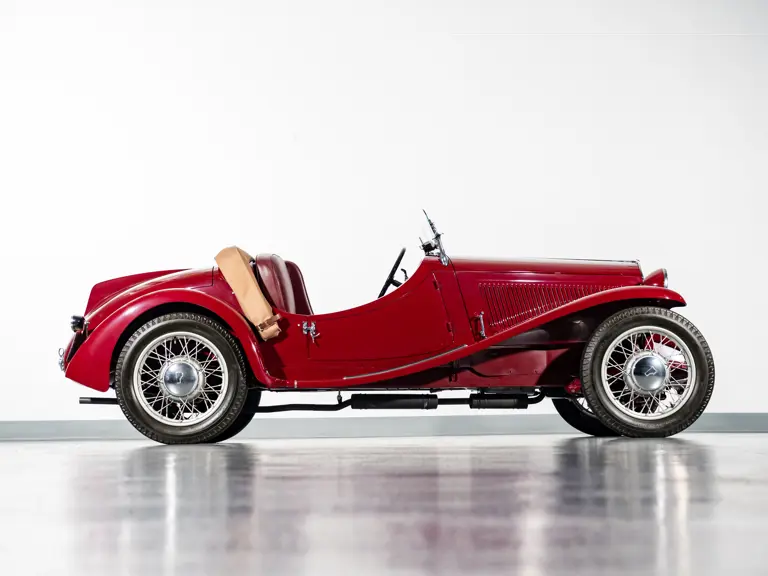
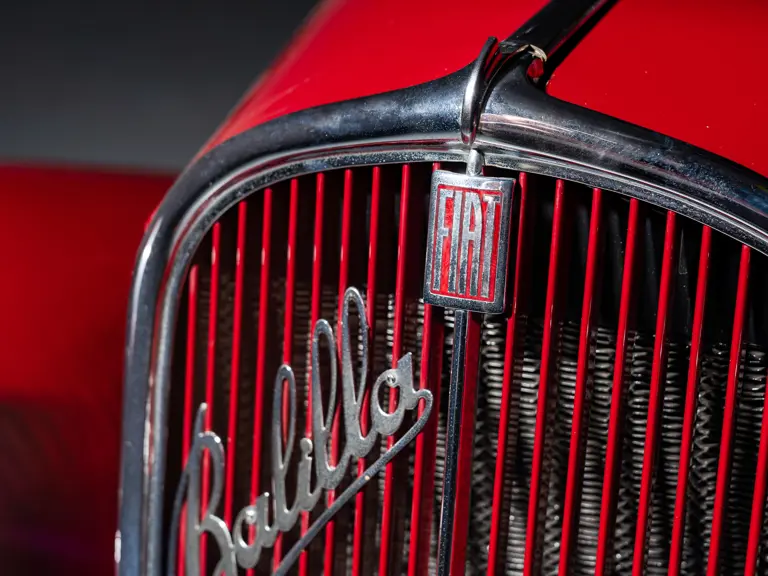
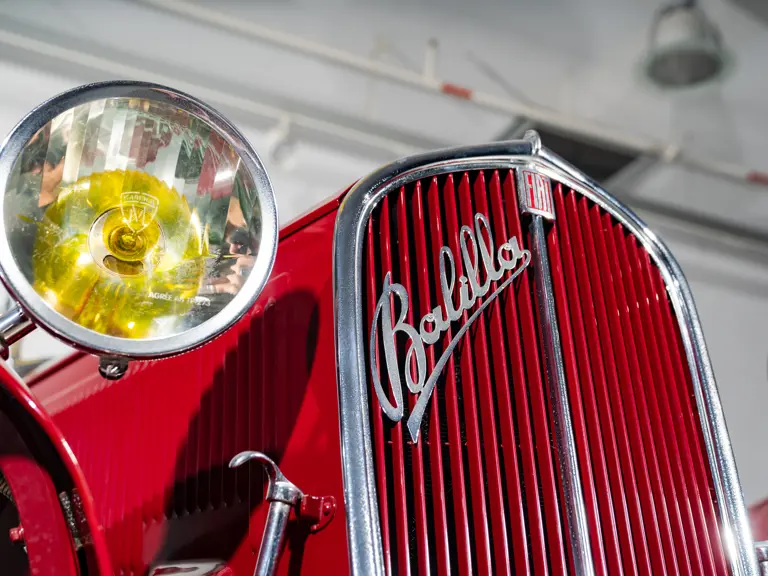
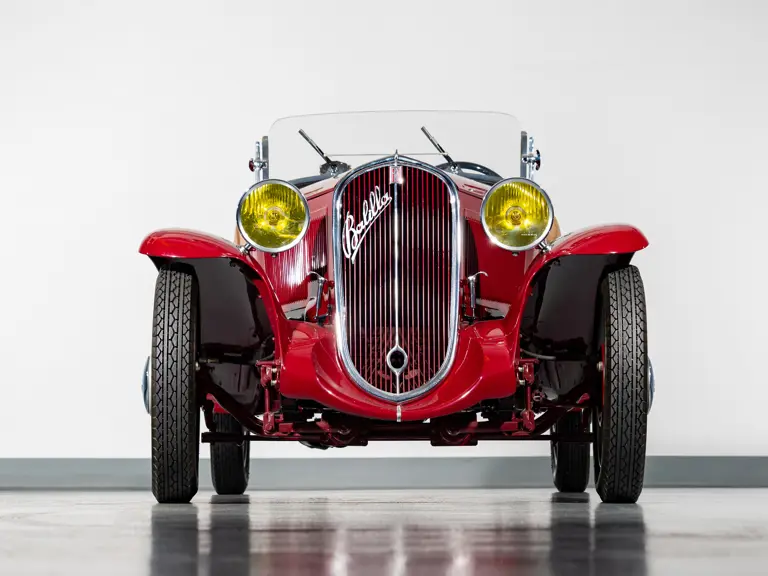
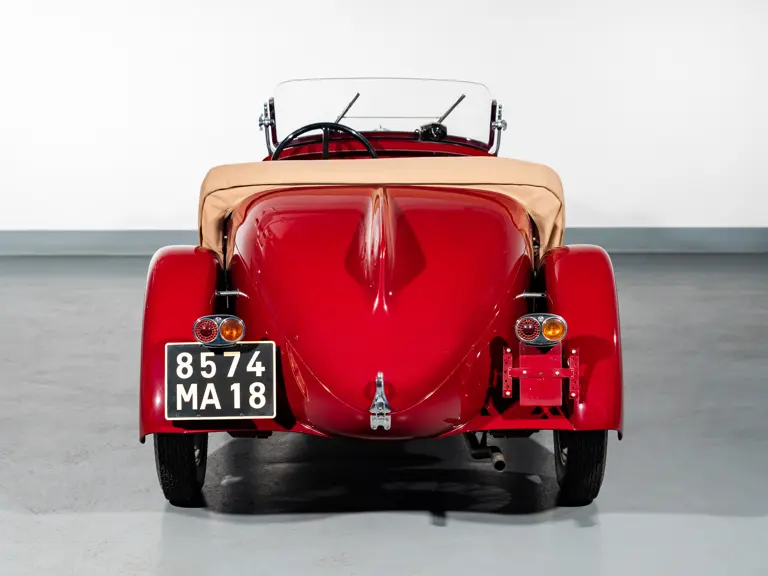
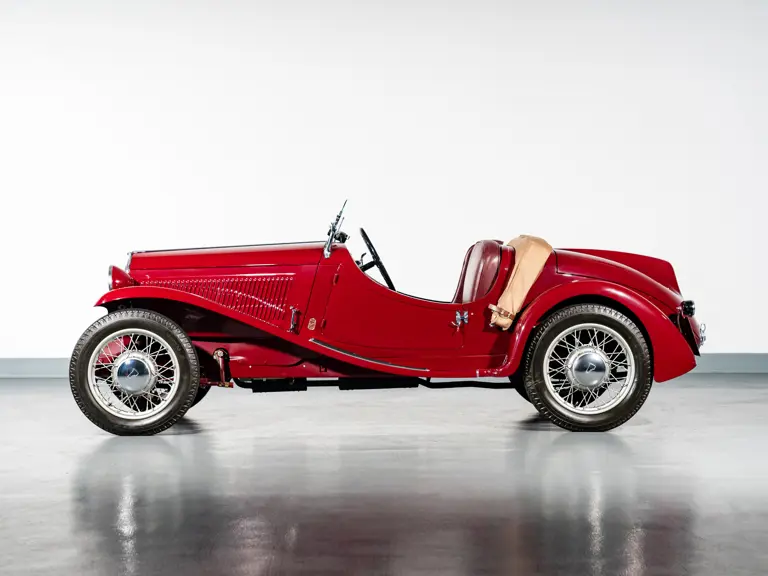
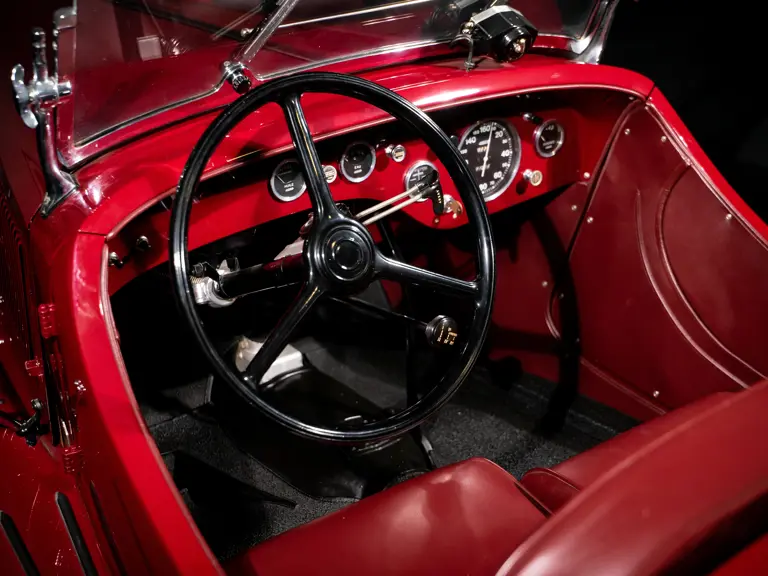
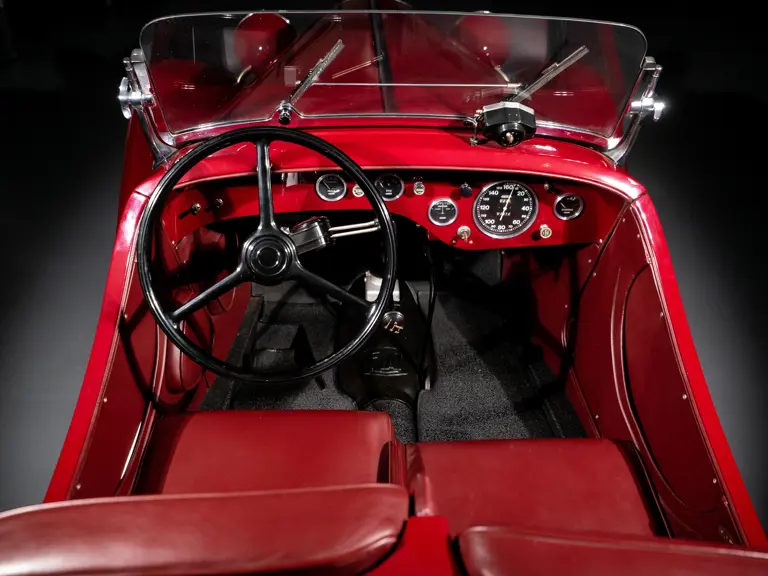
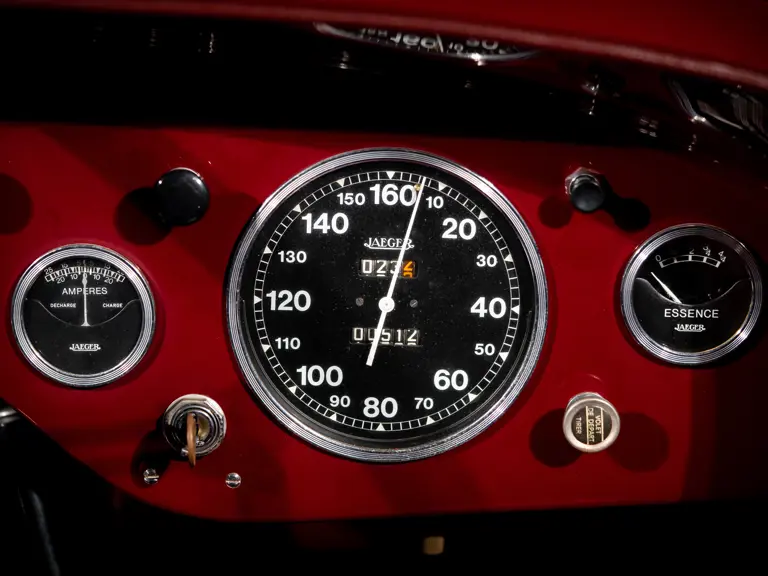
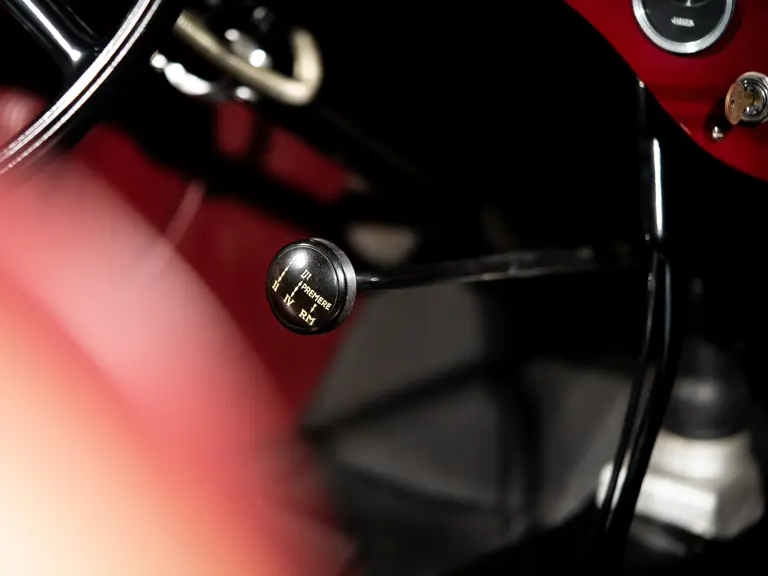
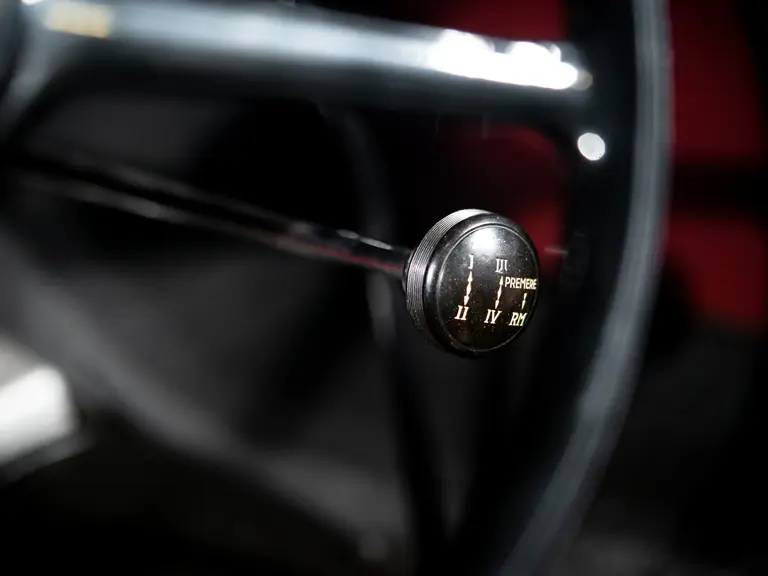
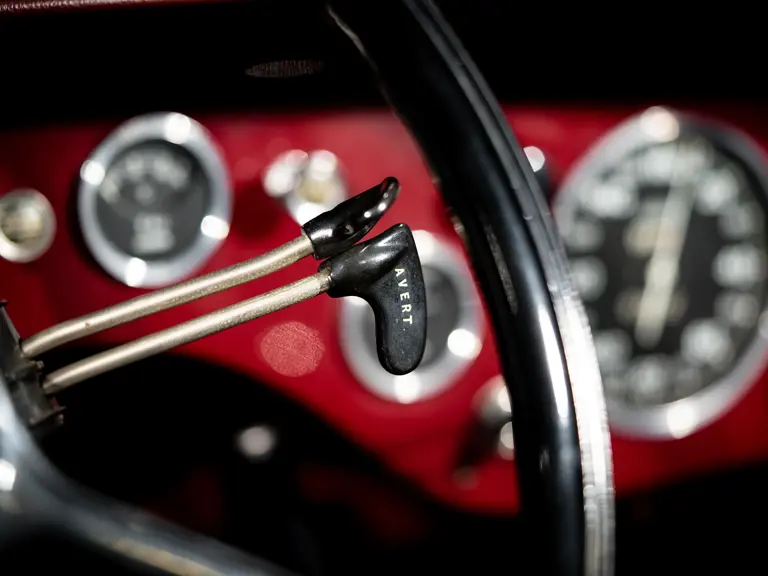
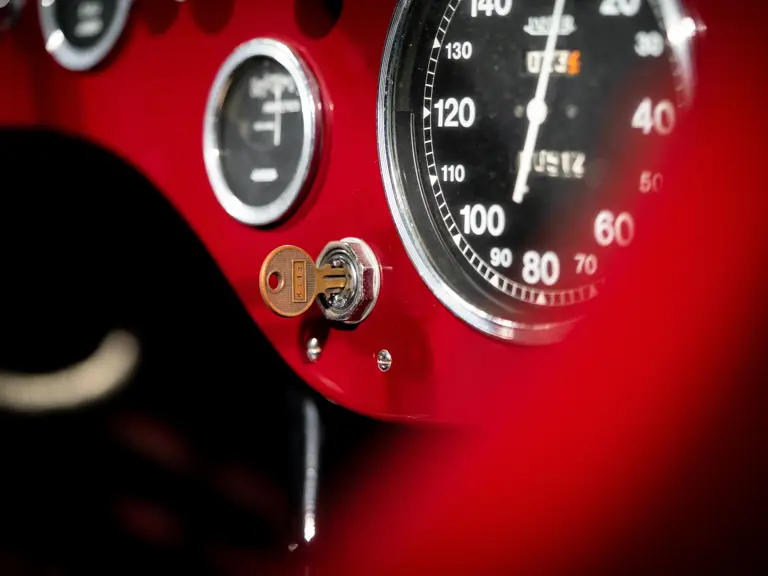
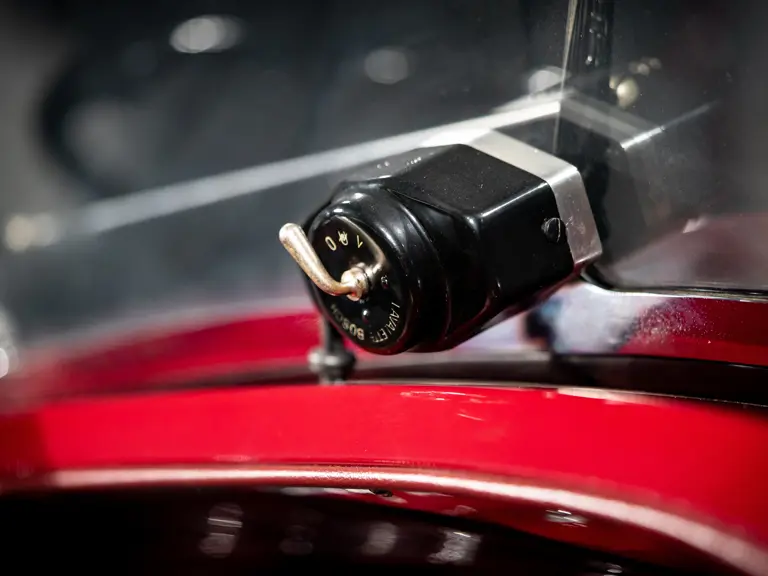
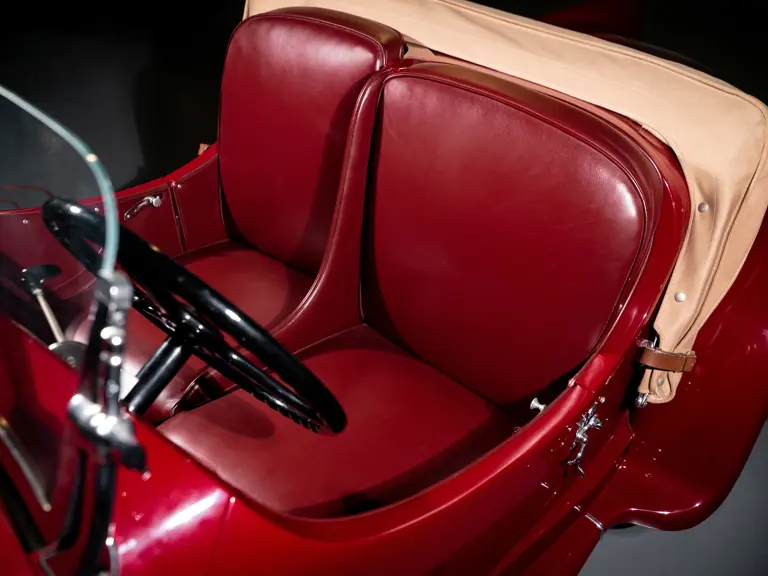
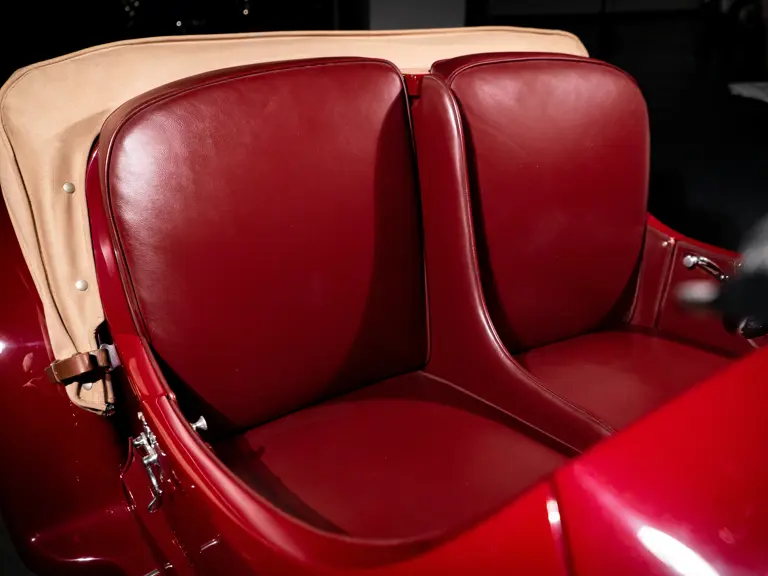
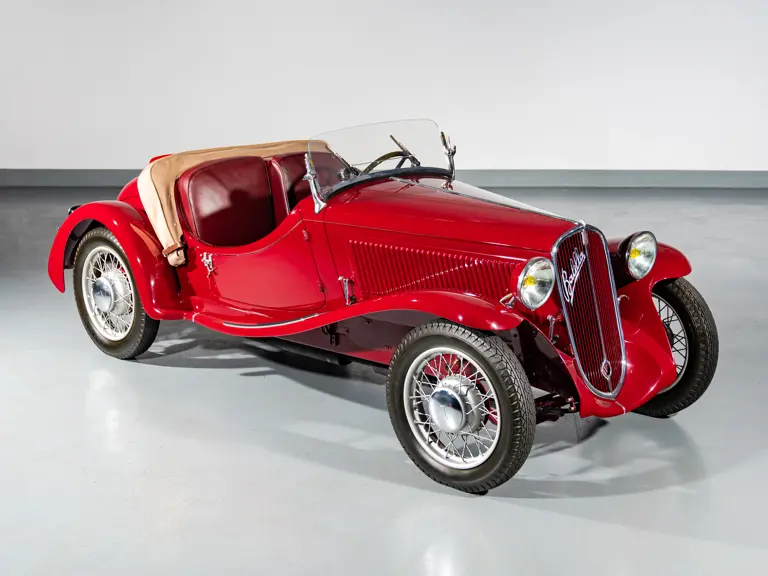
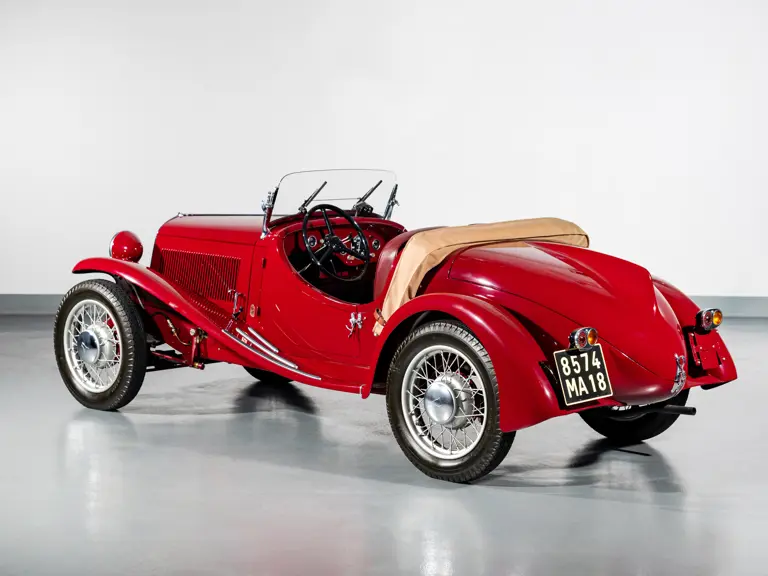
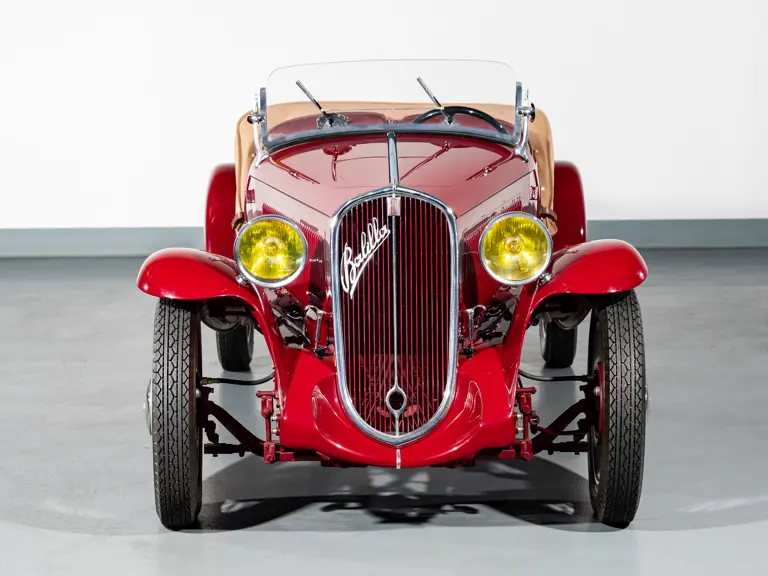
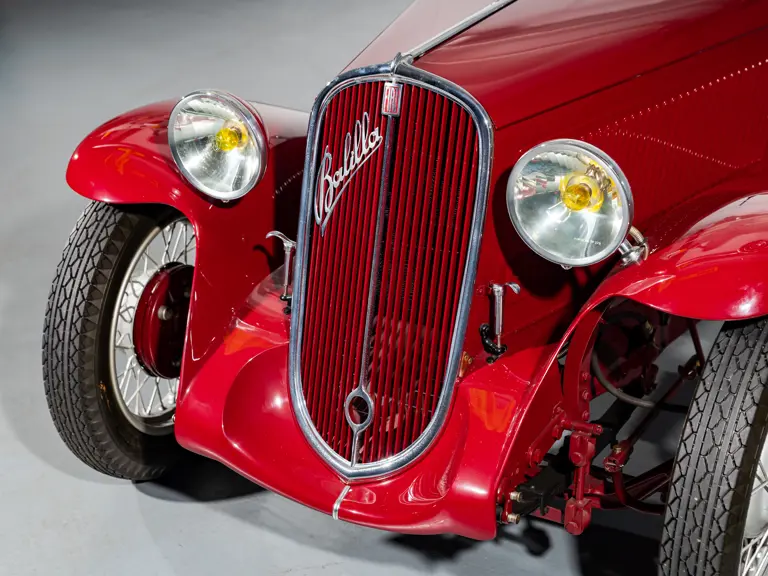
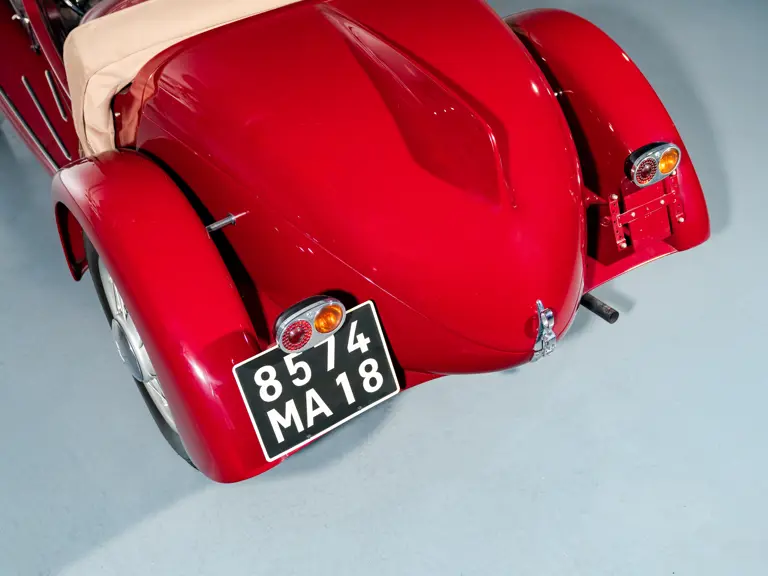
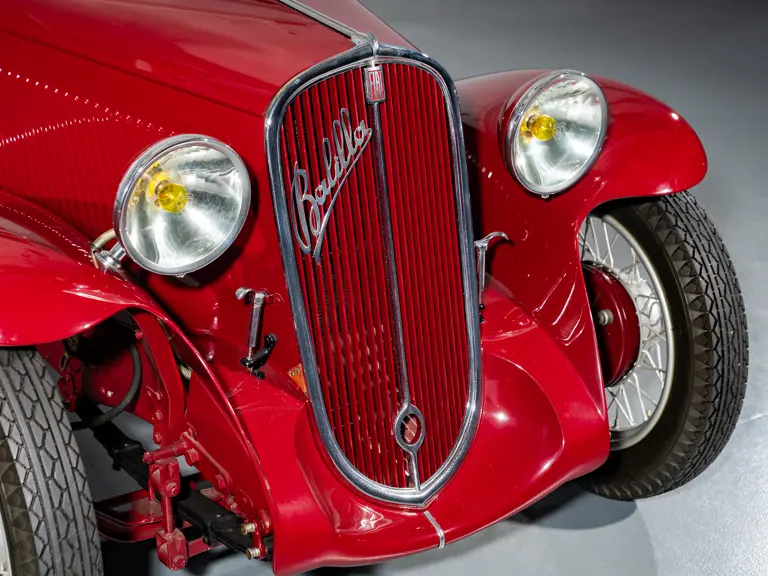
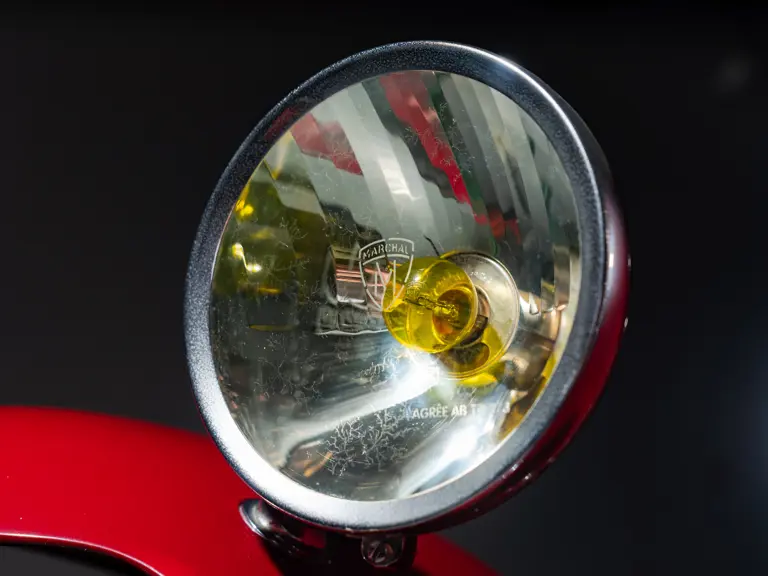
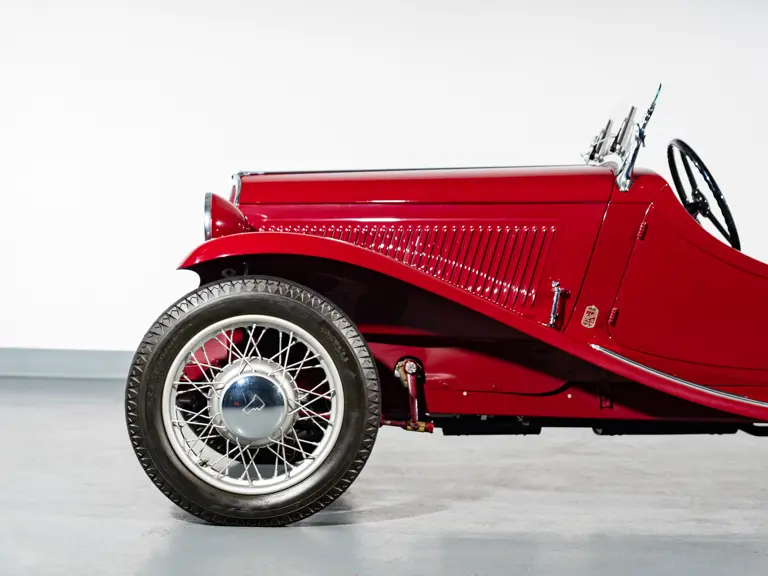
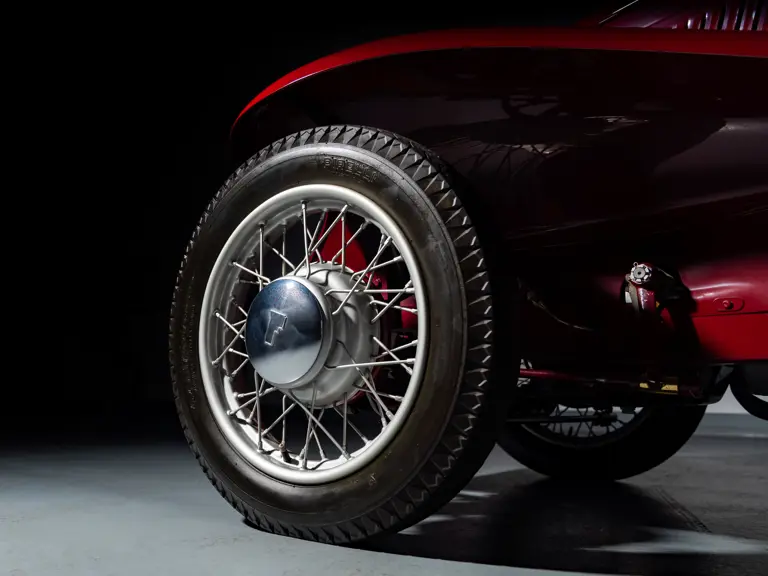
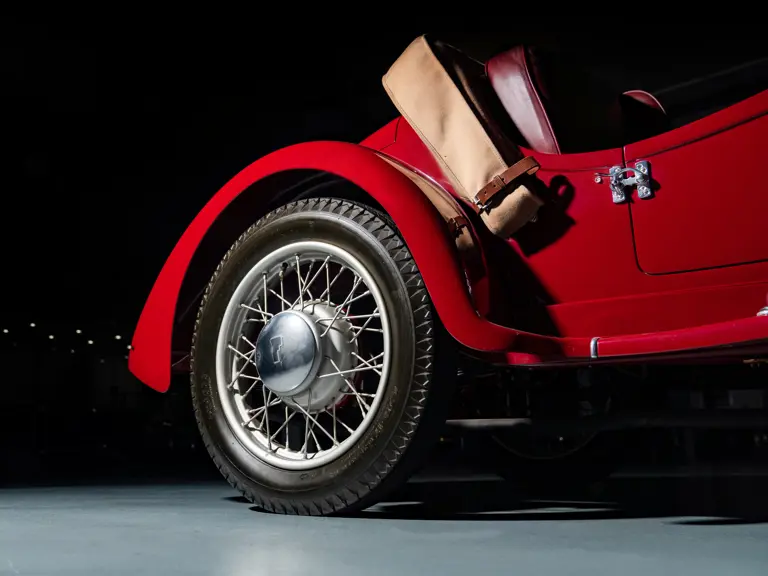
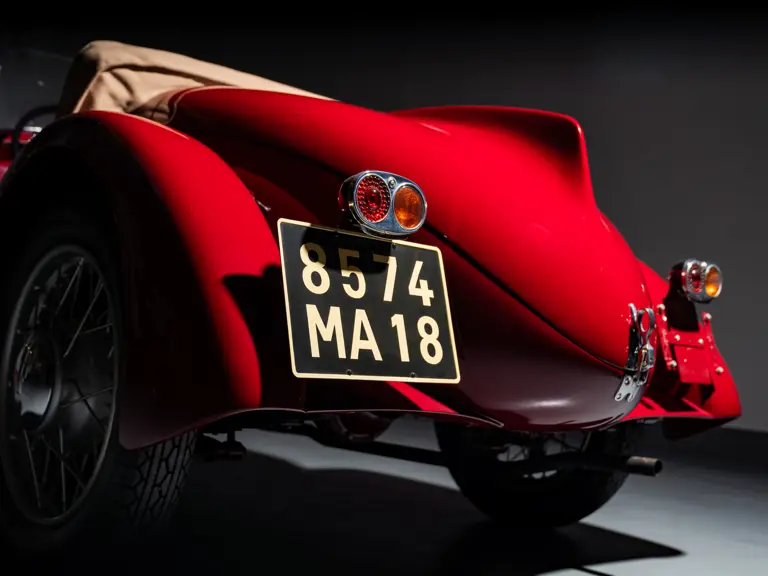
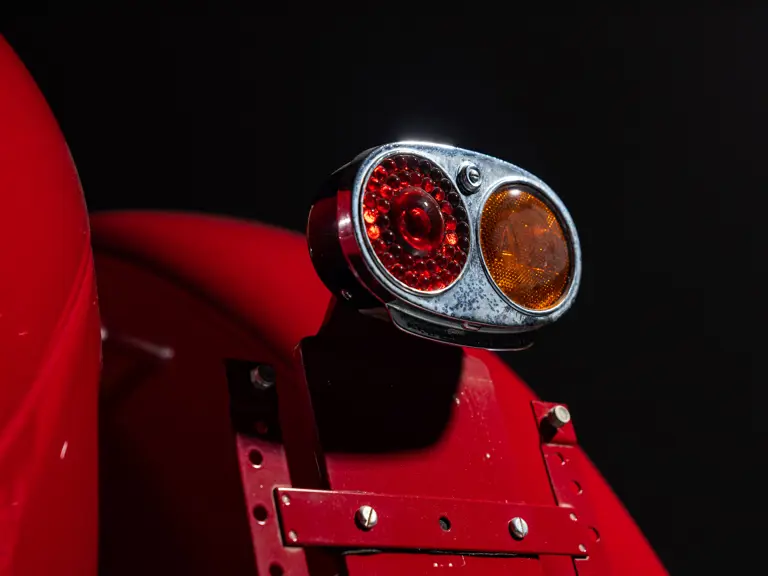
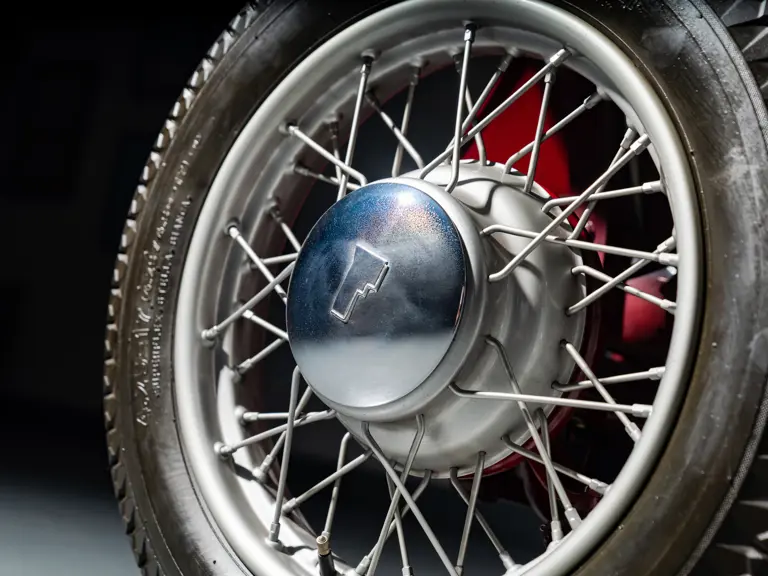
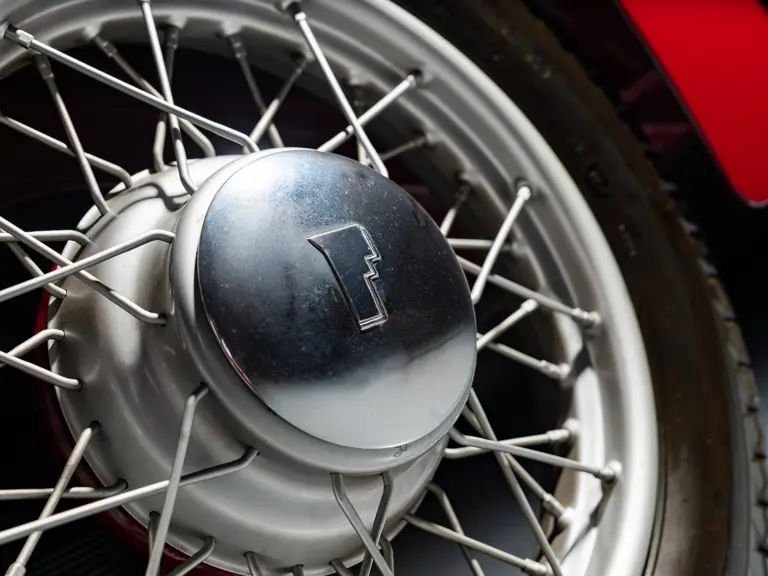
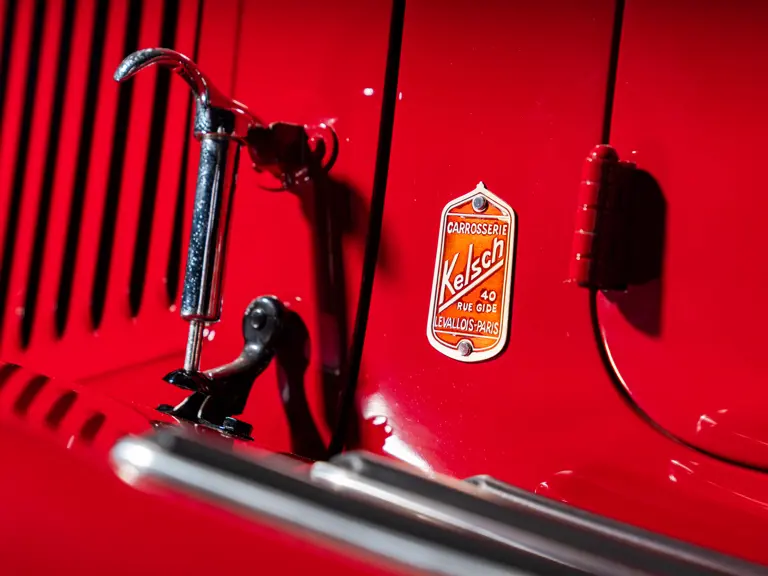
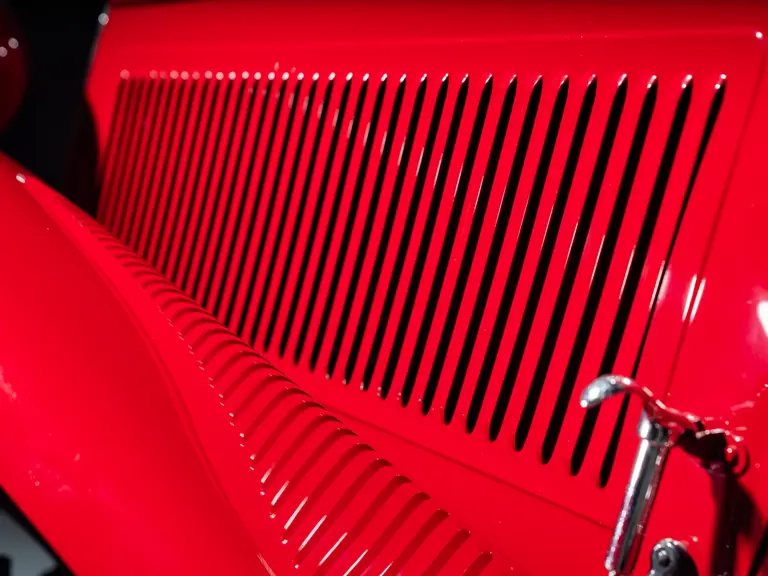
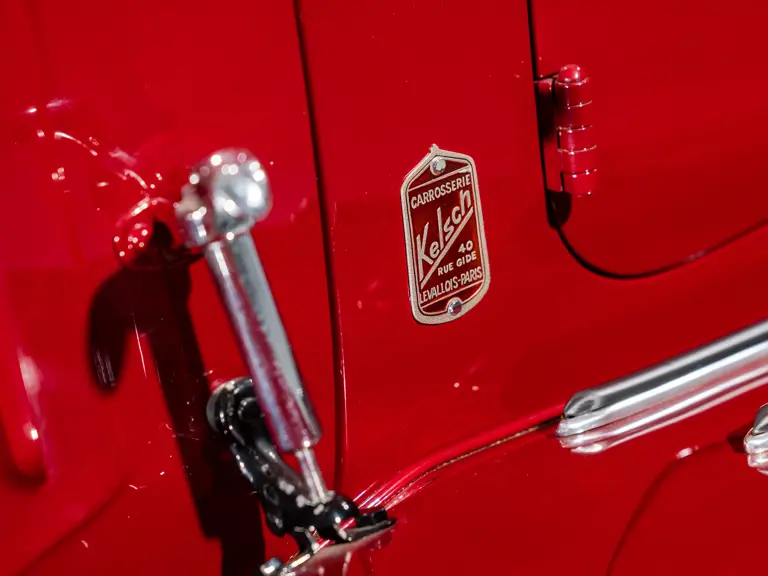
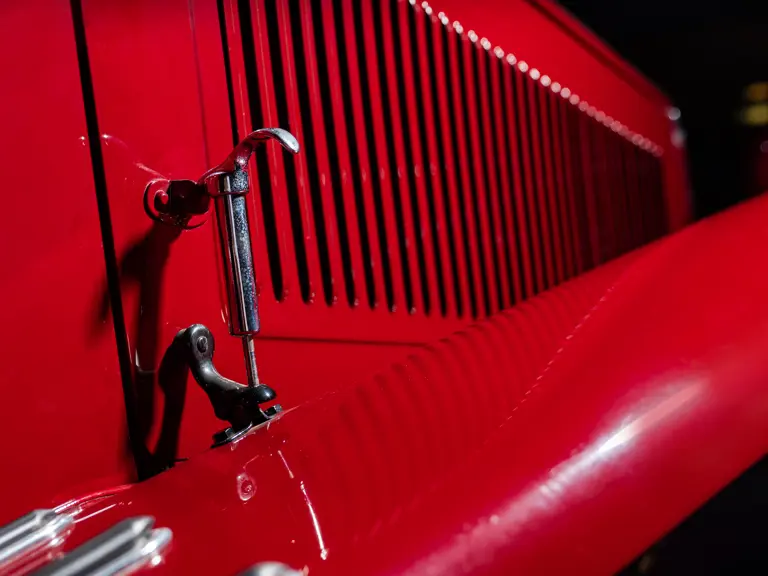
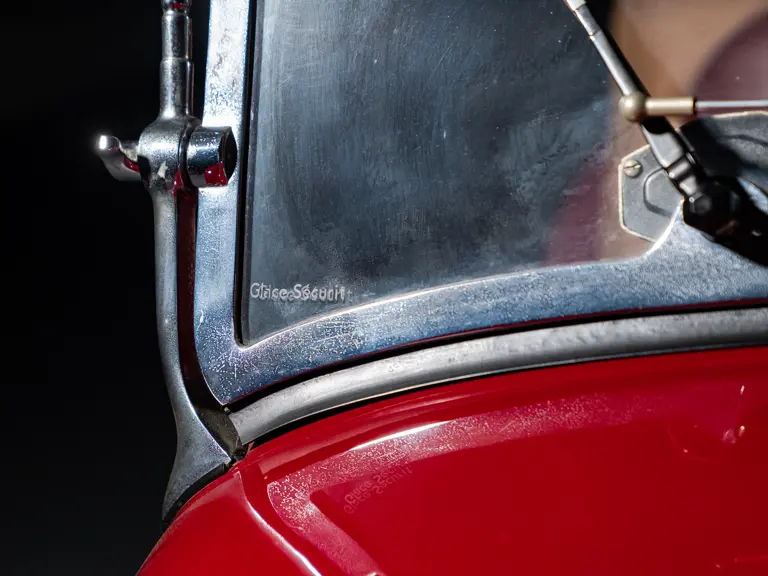
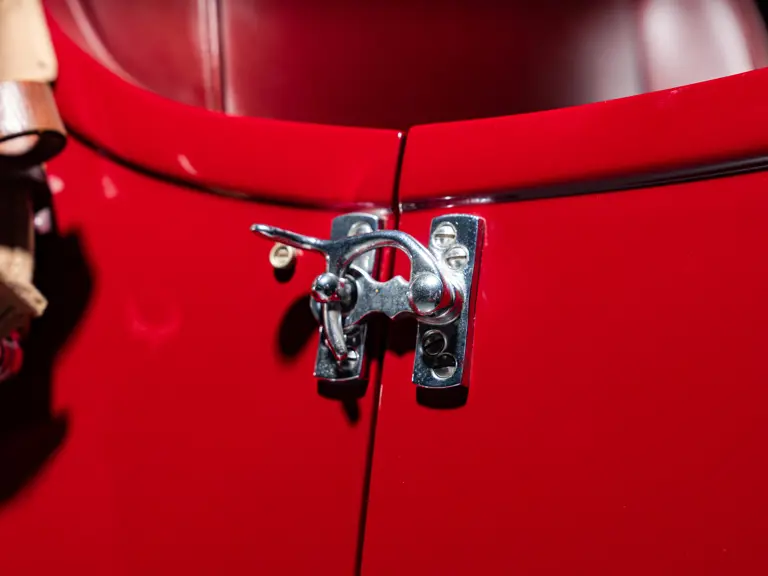
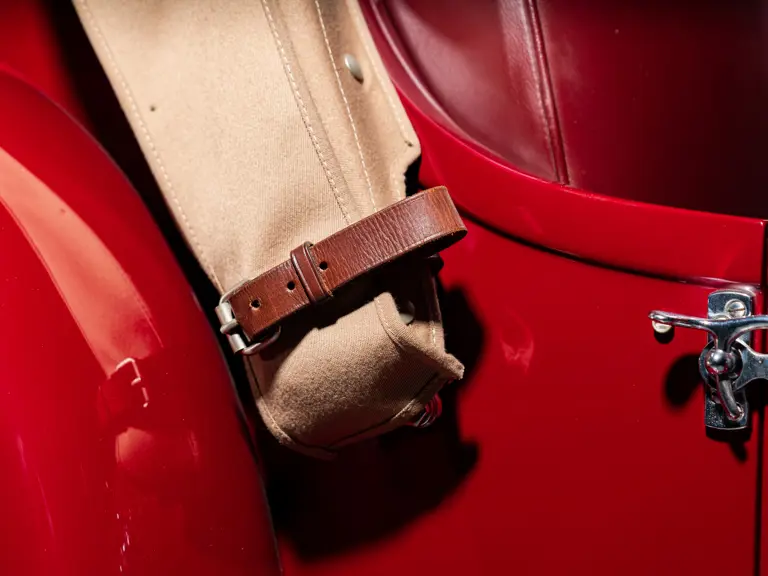
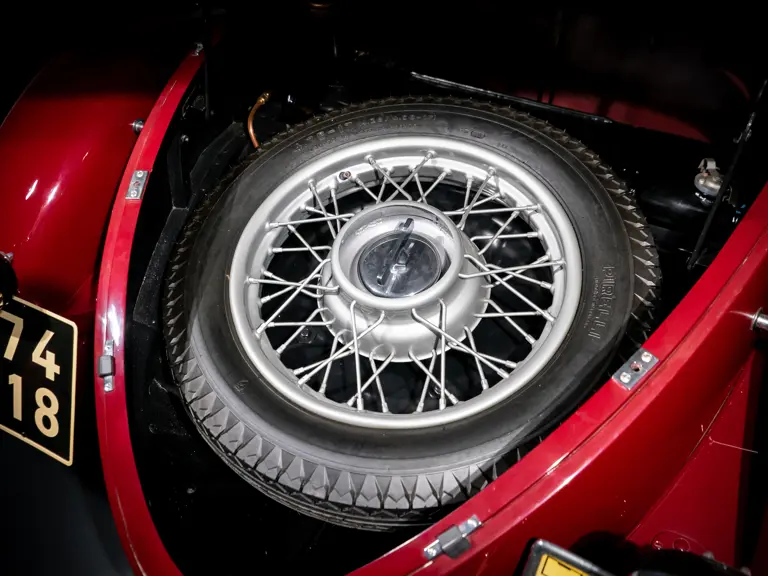
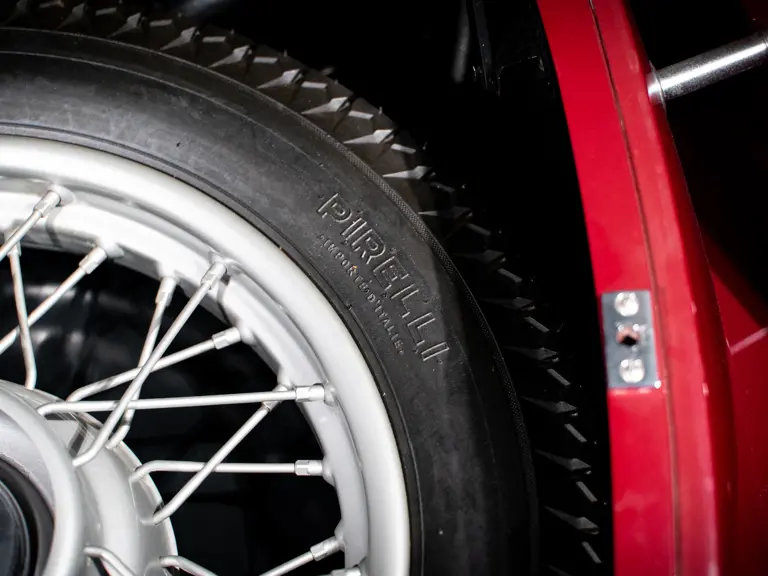
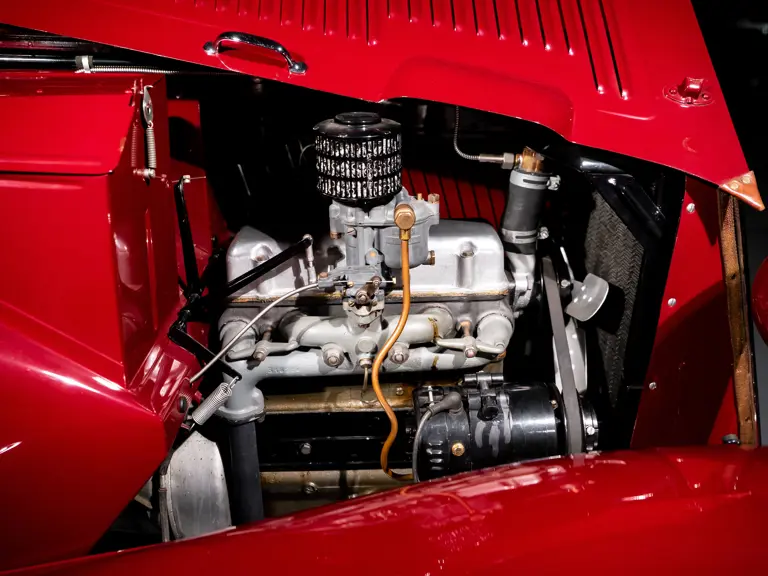
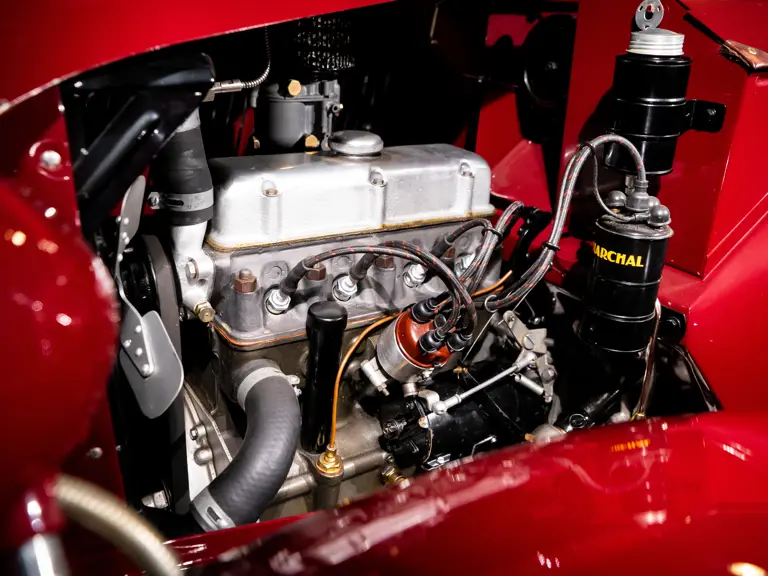
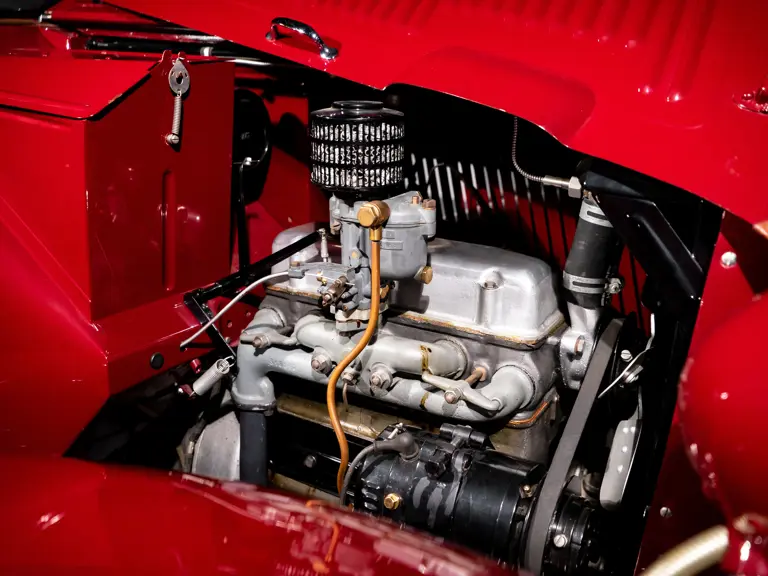
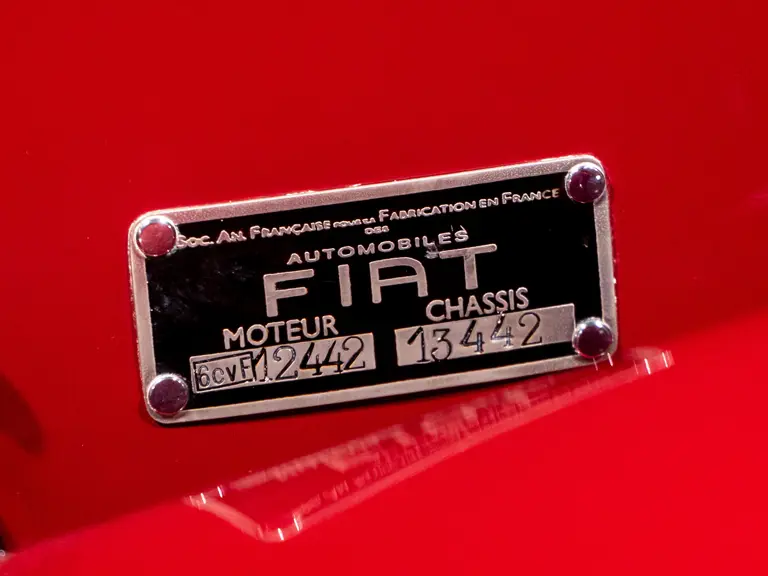
 | Monterey, California
| Monterey, California
